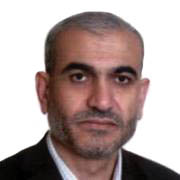Melanie Phillips: Time to call out those aiding the Israel pogrom
We know that the NGOs are the instruments of the Soviet-inspired psychological warfare campaign to bend the collective Western mind with systematic falsehoods and blood libels about Israel.Caroline Glick: The Iranian-American nuclear project
What we haven’t done is hold to account those who have enabled these institutions and groups to do these wicked things, and who have given them traction.
Israel and its defenders should be publicly calling out those Western governments which fund these NGOs, and demanding that they stop funding such demonization and incitement to Israel’s destruction.
Most of these Israeli NGOs are part of the New Israel Fund’s network. The NIF should be ostracized. If an organism has ingested poison it must expel it or else it may die.
UN Watch points out that since its establishment the UNHRC has condemned Israel more than the rest of the world combined. Why are the UK and US still members of this travesty of a human rights arbiter? As long as they participate in it, they validate and legitimize it. As long as Israel’s allies keep silent in the face of the libels against Israel pouring out of the NGOs, UN and other international bodies and their own media and universities, those governmental allies are themselves implicitly conniving at this delegitimization campaign. As long as they continue to fund these NGOs, they too have blood on their hands.
The Davis report is just the latest manifestation of the surreal nightmare through which we are living, in which much of the world has been turned into one giant pogrom, both physical and intellectual, against the Jewish state. To fight it, we must not only delegitimize the delegitimizers but hold their enablers’ feet to the fire, too.
If the US fails to reverse Obama’s policies toward Iran in the next two years, it is hard to see how it will be able to rebuild its strategic posture in the future.Martin Sherman: The logical lacunae of the Left - Ari Shavit at AJC
The pace of change in the region and the world is too rapid today to rely on past achievements as a basis for future power.
As for Israel, it is now clear that there is no “crisis” in Israel-US relations. The Obama administration is betraying Israel. The centerpiece of Obama’s foreign policy is his desire to transform Iran’s illicit nuclear program, which endangers Israel’s existence, into a legal Iranian-American nuclear program that endangers Israel’s existence.
Consequently, the last thing Israel should worry about is upsetting Obama. To convince fence-sitting Democratic senators to vote against Obama’s Iran deal, Israel should expose all the ruinous details of the nuclear agreement. Israel should let the American people know how the deal endangers not just Israel, but their soldiers, and indeed, the US homeland itself.
By doing so, Israel stands a chance of separating the issue of Democratic support for Obama from Democratic opposition to the nuclear deal. Obama wants this deal to be about himself. Israel needs to explain how it is about America.
At the end of the day, what we now know about US collaboration with Iran brings home – yet again – the sad fact that the only chance Israel has ever had of preventing Iran from getting the bomb is to destroy the mullahs’ nuclear installations itself. If Israel can still conduct such an operation, it makes sense for it to be carried out before Iran’s nuclear program officially becomes the Iranian-American nuclear project.
One of the annual program’s highlights is the Forum’s Great Debate, which this year featured The Jerusalem Post’s Caroline B. Glick and Haaretz’s Ari Shavit, on whether the two-state formula offers a constructive solution to the Israel-Palestinian conflict, or is merely a dangerous delusion.
Unsurprisingly, Glick gave a feisty repudiation of the conceptual rationale and practical feasibility of any resolution based on the two-state principle. My strong misgivings regarding the alternative one-state paradigm she proposes are well known, but while I differ on what should be done, I always find her arguments as to what shouldn’t be done powerful and persuasive.
But it is on her opponent, Ari Shavit, that I should like to focus in the ensuing paragraphs.
At the start of the debate, Glick showered lavish praise on him, describing him as “a shining example, of what is best on the Left.” She continued that although “from a policy prescription he remains entirely true to his tribe... he represents the best of his tribe,” adding, with a wry reference to his fellow ideologues’ tendency to disregard recalcitrant realities, “because from time to time, he can make room for facts that are uncomfortable to his tribe.”
Sadly, in his address Shavit displayed scant signs of such virtues.













































